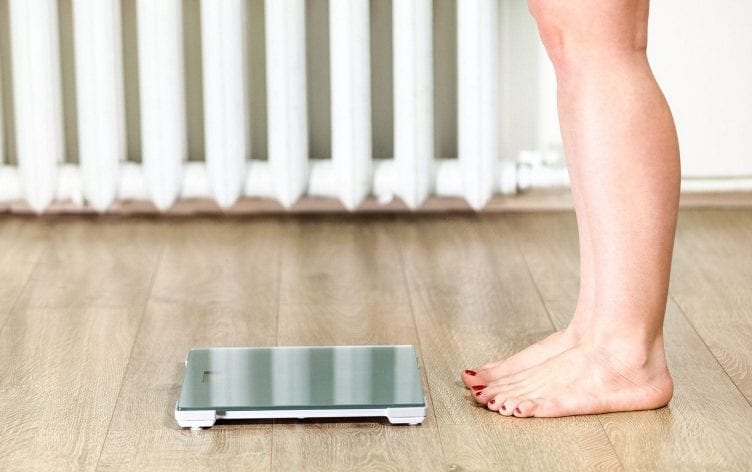
You can’t lose weight if you’re not checking in with the scale. There’s no way around that. And it’s a key part of the equation when using MyFitnessPal.
But there is disagreement, even among the experts, about how often to weigh yourself and which day is best. To wit: A 2014 Finnish study concluded that more frequent weigh-ins lead to more successful weight loss; just a year later, a British study concluded there’s no evidence that stepping on a scale daily is better than doing it weekly if you want the number on the scale to decrease. At MyFitnessPal, we have advocated that there’s no one single strategy when it comes to frequency of weigh-ins.
“Because weight changes slowly, you’re unlikely to see much of a change on day-to-day basis,” says Scott Kahan, director of the Washington-based National Center for Weight and Wellness. “For some people, if they don’t see the weight go down, they get very frustrated and give up. You need perspective to understand what is and isn’t reasonable to look for.”
If you do decide once a week is for you, here’s what experts say about which day of the week is best.
MONDAYS: FIND FOCUS FOR THE WEEK
It makes sense: You start the week off with a weigh-in, and know where you stand after what was perhaps a fun-filled weekend. That’s part of the rationale behind why MyFitnessPal’s default setting for weigh-ins is Mondays.
“We tend to go off on weekends a bit, which is fine, but it’s nice to have a check-in to get back to your normal weekly plan,” Kahan says. “It’s not seeing weight [on Monday] that motivates you. It’s the fact that you are paying attention to your weight that is a motivational aspect for rest of week.”
WATCH > FIT TIPS: ON LOSING WEIGHT
At the same time, the fact that most of us tend to loosen the reins (and our belts) from Friday night to the end of Sunday means your weight may be higher on Mondays, and therefore less motivating. If you’re concerned, remember it’s just a number on the scale.
“It’s not the number that matters, it’s how you interpret the number that’s important. It’s a piece of data you are getting,” Kahan says. “Use it as jumping-off point to get back on plan for the week.”
WEDNESDAYS: GET THE BEST READING
According to the 2014 Finnish study referenced earlier, we tend to weigh the most on Sunday evenings and the least on Friday mornings. So some experts say weighing in midweek gives you the most accurate reading.
“We recommend Wednesday because it gives you the most consistent reflection of which direction your weight is going,” says Sofia Rydin-Gray, director of behavioral health at the Duke Diet and Fitness Center in Durham, North Carolina. “On Sundays, we weigh the most because we eat and drink more on the weekend, and by Wednesday, you’ve had a few days to get back on track.”
READ MORE > 5 SIGNS YOUR SCALE IS SABOTAGING YOUR WEIGHT-LOSS QUEST
But if you’re the type to let a weekend of lax eating bleed into Monday and then Tuesday, it may be better to get on the scale Monday to motivate you to get back on track.
FRIDAYS: MAKE THE MOST OF WEEKENDS
Checking your weight before the weekend can help you strategize for it. “If you’ve worked hard during the week, you can see what your progress is and have that to decide if you want to reward yourself a bit and have some splurges on the weekend,” Kahan says. “Or if your weight hasn’t gone down, maybe you decide to go to gym and not go out to eat.”
However, this may not work for everyone, Rydin-Gray cautions: “If you gained a pound, it could make some people feel bad and lead to binge eating [all weekend],” she explains. This “I might as well eat junk” mentality can then snowball — if you tell yourself you’ll start over on Monday, you may never get back on track.
THE BEST DAY TO WEIGH YOURSELF?
It’s simple: Do it on the day to which you can commit.
“Use weigh-ins as a tool to help you stay on track and stay focused on making healthy choices,” recommends Rydin-Gray. “They can be whenever, but do it the same day and same time every week, with the same scale. Every scale is calibrated slightly differently, and your weight can fluctuate several pounds in one day.”







